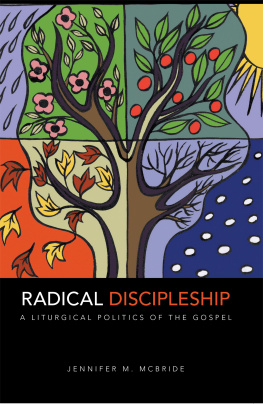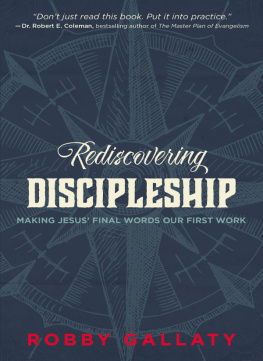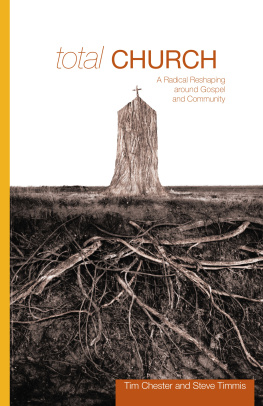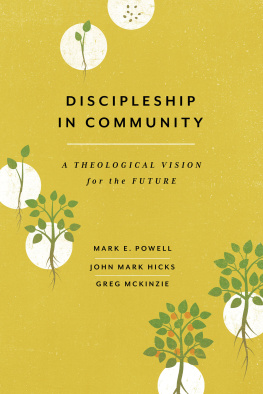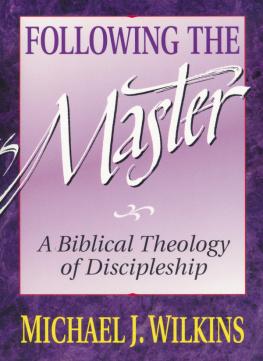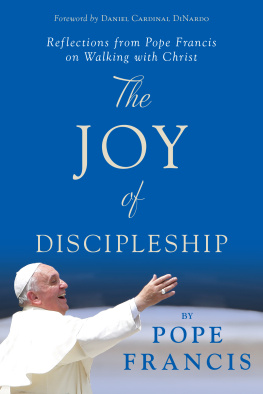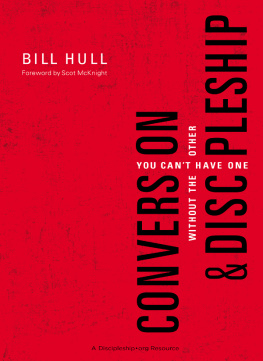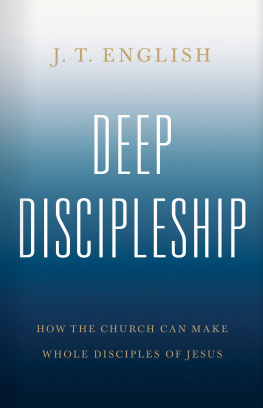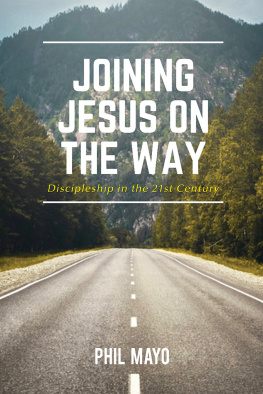Radical Discipleship -- Radical Discipleship
1
Praise for Radical Discipleship
Weaving together her profound expertise in Dietrich Bonhoeffer and Martin Luther King Jr. with the poignant authenticity of someone who has spent time on the frontlines of lockdown America, Jennifer M. McBride calls us to discover the promise of the gospel in a divided age. Her extraordinary journey to radical discipleship among those in prison challenges us all to a life of costly grace. This is a compelling and beautifully written book for anyone who cares about the future of Christianity.
Jeffrey C. Pugh
Elon University
Prisoners need prophetic advocates who will be their voice to teach us about the reality of their lives. Jennifer McBrides powerful account of her work with women in prison raises their insights as she challenges us to rethink what the gospel is all about. This book is full of wisdom, pathos, and hope as it invites us to be transformed into disciples who enter into community with people we readily condemn.
Helen Prejean, CSJ
Author, Dead Man Walking
In her brilliant exploration of the politics of the ecclesial calendar, Jennifer M. McBride shows us the different invitations each church season poses to those who would follow Jesus, and the different truths each season teaches about what following Jesus entails. McBride has named writing this book as an act of worship; in a way, reading it might be an act of worship, too.
Lauren Winner
Duke Divinity School
This is an original, wise and inspiring book. McBride draws on her wide and deep theological learning, alongside her experiences of radical Christian practices of community, to present a realistic and challenging account of what discipleship might entail in a profoundly unequal and unjust society.
Rachel Muers
University of Leeds
A gritty, honest practical theology rooted in lived experience. A very strong new contribution from the author of the brilliant The Church for the World. Strongly recommended!
David P. Gushee
Mercer University
Jennifer McBride writes lived theology in the fullest sense of those words. She has lived into the discipleship to which she calls us. And she has listened deeply to disciples she has walked with along the way: imprisoned women, homeless people, long-time activists, and more. The genius of McBrides work is to respect the theological insights in these lives and to place them in conversation with thinkers like Martin Luther King Jr., Dorothy Day, and Dietrich Bonhoeffer. The result is a book that is both deeply learned and eminently practical. In its method as much as its content, it is one of this generations most thoughtful and powerful calls to radical discipleship.
Ted A. Smith
Emory University
Radical Discipleship
A Liturgical Politics of the Gospel
Jennifer M. McBride
Fortress Press
Minneapolis
RADICAL DISCIPLESHIP
A Liturgical Politics of the Gospel
Copyright 2017 Fortress Press. All rights reserved. Except for brief quotations in critical articles or reviews, no part of this book may be reproduced in any manner without prior written permission from the publisher. Email copyright@1517.media or write to Permissions, Fortress Press, PO Box 1209, Minneapolis, MN 55440-1209.
Cover image: Tree Seasons by Rita Corbin; ritacorbinart.com
Cover design: Alisha Lofgren and Lauren Williamson
Print ISBN: 978-1-5064-0189-8
eBook ISBN: 978-1-5064-0190-4
The paper used in this publication meets the minimum requirements of American National Standard for Information Sciences Permanence of Paper for Printed Library Materials, ANSI Z329.48-1984.
Manufactured in the U.S.A.
This book was produced using Pressbooks.com.
For the women
in the prison theology program:
my teachers, students, sister theologians, and friends.
Know it well. Love was his meaning.
Julian of Norwich
Contents
1
Introduction: The Space of Radical Discipleship
Hes talking about us, Natalie says with measured surprise and visible emotion as she looks up from the page I read. It is a passage from Dietrich Bonhoeffers Letters and Papers from Prison:
From a Christian point of view there is no special problem about Christmas in a prison cell. For many people in this building it will probably be a more sincere and genuine occasion than in places where nothing but the name is kept. That misery, suffering, poverty, loneliness, helplessness, and guilt mean something quite different in the eyes of God from what they mean in the judgment of human beings, that God will approach where humans turn away, that Christ was born in a stable because there was no room in the innthese are things that a prisoner can understand better than other people; for her they really are glad tidings, and that faith gives her a part in the community of the saints, a Christian fellowship breaking the bounds of time and space (Dec. 17, 1943).
When Natalie looks up, our eyes spark with the kind of connection that occasionally happens as eyes lock with a stranger passing by, or that occurs upon a first encounter with someone who is about to become a central figure in ones life, in this case a sister among sisters, fellow pilgrims on a shared journey from suffering, loneliness, and guilt toward belonging, glad tidings, and fellowship.
It was Advent 2008. As a postdoctoral fellow at Emory University, I had been invited to teach a pilot class for a theology certificate program at a womens prison on the German pastor-theologian and Nazi resister Dietrich Bonhoeffer. Anticipated in that spark would be a communion that would link the likes of Dietrich Bonhoeffer to incarcerated women in Georgia, and that would usher them and me into the beloved community being worked out at the Open Door, an intentionally interracial, residential, Christian activist and worshipping community in Atlanta, Georgia, that for thirty-five years has been engaged in works of mercy and justice focusing on homelessness, mass incar-ceration, and anti-death-penalty protest.
This book arises out of my overlapping experiences at the womens prison and the Open Door Community. Entering into the surreal world of the prison, inmate society, as the women in the theology program call it, and bringing it home with me every Friday nightRemember those who are in prison, the writer of Hebrews says, as though you were in prison with themled me to seek out regular worship at the Open Door during Lent 2009. The exhortation in Hebrews was, for me, less of a command and more of a problem. I could not stop remembering them, and I did not know how to integrate my time there into my daily life and relationships the rest of the week. Worshipping at the Open Doorwith former inmates, homeless people, academics-turned-activists, seminarians and other students, and residential and non residential volunteersbecame that integration. While the women were my guides inside the prison, helping me make sense of what I observed and experienced there, I also needed a church community on the outside that understood what I was encountering and that could sustain me as I ventured in and out of the prison.
The biblical and theological reflection in these pages is the fruit of seven years of continual engagement with the women in the theology program and the members of the Open Door. The first two and half years, while living in Atlanta, I was in the prison on a weekly basis, and the Open Door Community was my church home. As the pilot course transitioned into the programs inaugural year, I transitioned with it as unexpected opportunities arose allowing me to remain engaged in the work of teaching and then also directing the program under the vision and leadership of Emory ethicist Elizabeth Bounds. My first sustained interactions with these women consisted of approximately eight to ten hours every Friday teaching the theology foundations course, various electives, and directing afternoon study hall. Even after moving away for an assistant professorship, I have had the opportunity to continue teaching and engaging with the women weekly each summer, during academic year breaks, and through written correspondence.

